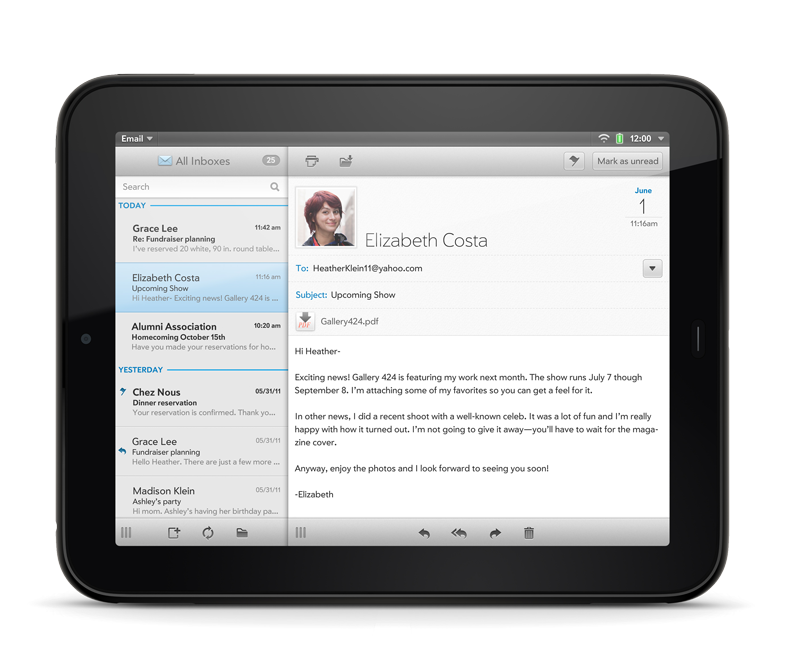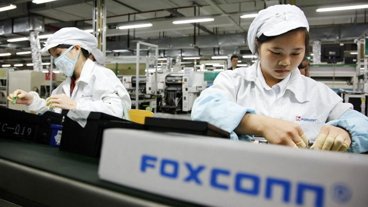HP's confounding call to build more TouchPads likely due to obligations
Analyst Shaw Wu with Sterne Agee said in a note to investors on Wednesday that HP's move is both "surprising and confusing," given that the company recently announced it would discontinue webOS-based hardware, including the TouchPad and Pre smartphones. Originally billed as an iPad competitor, the TouchPad was axed after just six weeks on the market.
Wu has calculated a cost of $220 in components and $80 in operating expenses for each TouchPad that HP builds. At a discounted price of just $99, that would mean that the company is losing about $200 per unit.
"While the company is stating it is doing so to satisfy stronger than expected demand, our checks with supply chain sources indicate another reason may be to fulfill commitments to component suppliers and manufacturing partners," he said.
"This makes sense as it is not in HPQ's interest to alienate the supply chain base and the company may not lose as much money as it is bringing in some revenue as opposed to taking a full write-down on commitments with no revenue."
Wu's sources reportedly told him that there were plans to build between 500,000 and 1 million TouchPad units. It is unknown how many were previously made, or how many more HP plans to produce.
Having a larger install base of TouchPad and webOS devices could theoretically increase the value of webOS, should HP consider selling the operating system, Wu said. He sees Samsung, Research in Motion, HTC, Amazon, FaceBook, Sony and Microsoft all as potential buyers.
This week, Samsung was singled out in a rumor that said the company may be interested in buying webOS from HP. The company is allegedly interested in competing more directly with Apple's integrated hardware-software approach, and obtaining webOS could allow it to move away from Google's Android platform.
HP acquired Palm and webOS in 2010 for $1.2 billion. The company initially planned to add webOS to Windows PCs, but those ambitious plans were scrapped this month, when the company announced it will instead focus on higher margin software and services.
Executives with HP indicated this week that they could revive the TouchPad at some point in the future, as the company looks to spin off or potentially sell its PC division. The company also said it would build "one last run" of TouchPad units to "meet unfulfilled demand," as consumers rushed to take advantage of the $99 clearance price.
 Neil Hughes
Neil Hughes














 Amber Neely
Amber Neely
 Thomas Sibilly
Thomas Sibilly
 AppleInsider Staff
AppleInsider Staff
 William Gallagher
William Gallagher
 Malcolm Owen
Malcolm Owen
 Christine McKee
Christine McKee










47 Comments
Wouldn't it be cheaper/less effort to pay off their suppliers, or if they plan to spin off or sell their PC manufacturing business, include the obligation to suppliers as a debt? I mean, if they can't sell the TouchPad at above their BOM, they're still losing money.
I bought a touchpad for $99 just because it was so cheap, possibly can run Android in the future, and because I expect to use it for nothing more than a photo album, web browser and email client. There is this one side of me that knows if the touchpad proves to be any good at all, it only drive me to get an iPad for everything else it offers over competing tablets. I just hope this is the case with all the rest of the touchpad buyers!
Wouldn't it be cheaper/less effort to pay off their suppliers, or if they plan to spin off or sell their PC manufacturing business, include the obligation to suppliers as a debt? I mean, if they can't sell the TouchPad at above their BOM, they're still losing money.
If they are obligated to pay $220 in component costs for a certain fixed number anyway, they might as well make the $100 on whatever they can. The loss is lower, no?
Coming on the heels of the weird PC division decision (spinoff? sale? when? why? to whom?) it smacks of such a poorly thought-out and hastily implemented set of decisions, that it makes you wonder about the quality of the CEO and the board. The latter, of course, has repeatedly messed-up, it would seem - e.g., the spying scandal, the Mark Hurd scandal.
I am truly surprised that large shareholders are not taking them to the woodshed.
If they are obligated to pay $220 in component costs for a certain fixed number anyway, they might as well make the $100 on whatever they can. The loss is lower, no?
Plus if a good portion of components were already paid for and shipped to the manufacturing plant they are already out the money for those parts and make also incur a hefty fee for paying the manufacturing plant for disposing of components they no longer wish to use.
They would have sold them all at $199, it was an idiot decision to just dump them at $99. Hell, at $299 they would have cleared them out. This is why some major commentators have been calling it corporate suicide.
You know what - they could have charged to pre-install some apps, like PCs have apps pre-installed - that would have given them even less of a loss. Or adverts - like the ad-supported Kindle.
The other potential reason is that they have a purchaser lined up for WebOS / Palm, but that that purchaser wants an established market of (random figure) 1 million devices before they'll bite, so they're bumping the market figures up to get a sale.